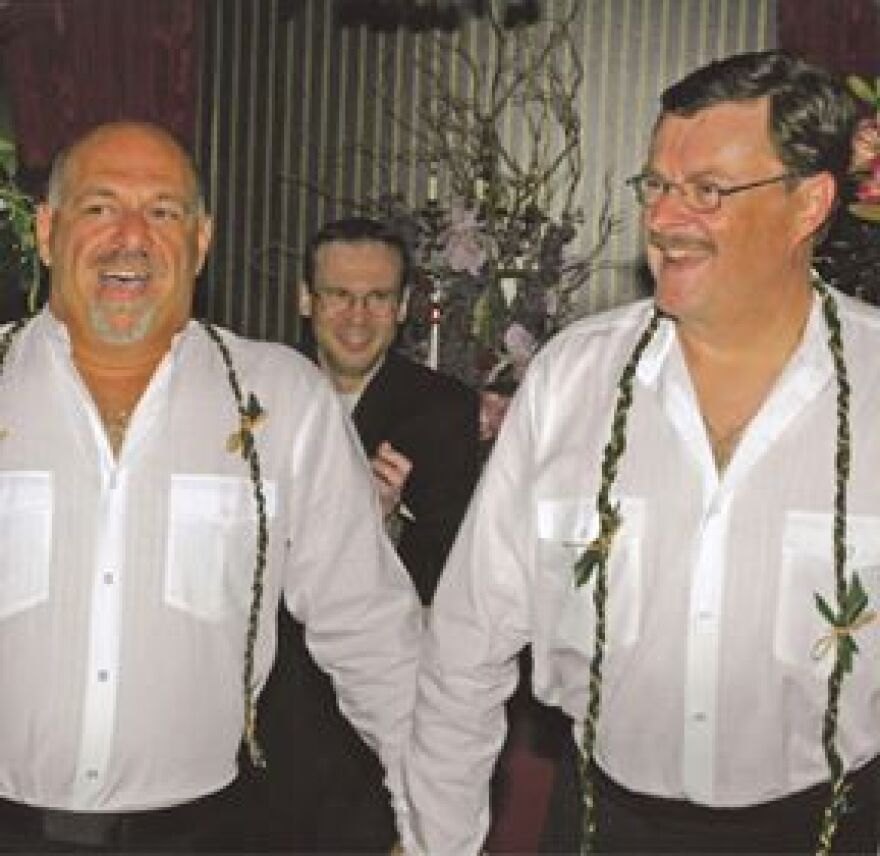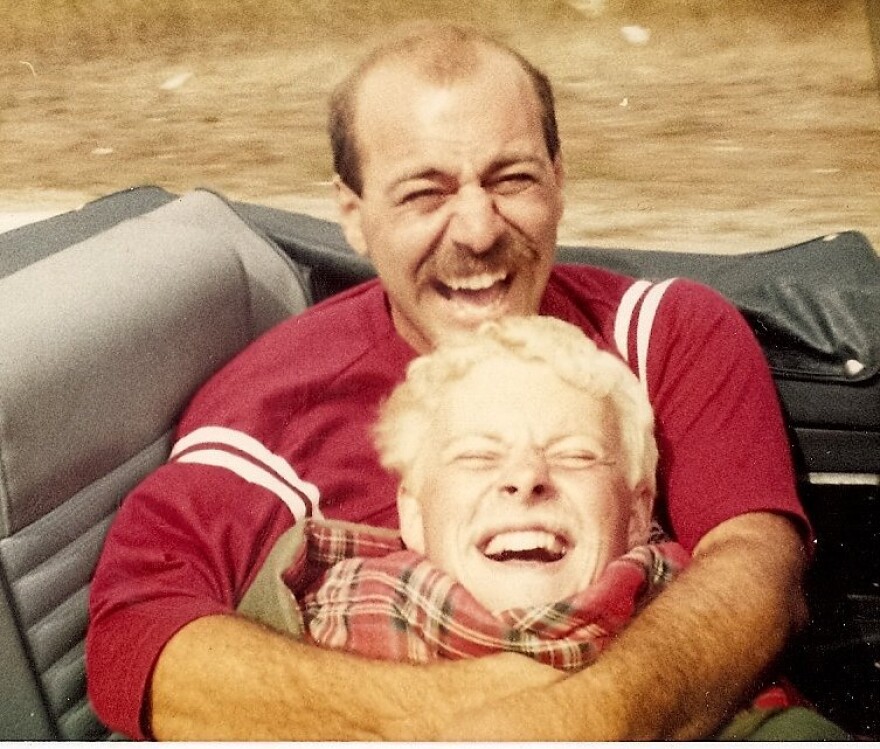It's National Pride Month, and Flagstaff's Pride in the Pines celebration kicks-off today. This year marks the 50th anniversary of the Stonewall Uprising, when police raided the Stonewall Inn in Manhattan's Greenwich Village. It catered to gay patrons at a time when most establishments did not. The raid led to widespread protests, setting in motion the gay liberation movement. Many Pride celebrations this year are honoring that history by documenting stories of what it was like to be gay before it was legal in the U.S. In this week's installment of KNAU's Poetry Friday series, Flagstaff listener Jamey Hasapis talks about the difficulty of coming out; to himself and to his family in the early 80's at the age of 26. He sets the story within the framework of Frank Bidart's iconic poem, Queer.
JH: When I read Queer, it was almost like I was reading about myself when I was younger. When I came out, it was during the Gay Games in San Francisco in 1982. Everybody was celebrating this individuality in who we were. There were 10,000 people there, at least. There were all of these athletes in the middle of the stadium, and they were all just proud as could be of who they are. And there I was…I was hiding who I was for the longest time. A lot of it was because of fear: Fear of hate, fear of not belonging anymore. Just complete fear. And that moment, within that time, I just said to myself, ‘I’m not going to let this happen anymore. I want to be who I am and let people know who I am. And, I accept who I am for what I am.’ And, I just broke down. I sat down and started crying.
It wasn’t easy. I have a cousin who is my dad’s age, and I would talk to him about coming out. It was very difficult for them. It was hiding. Myself in the 70’s when I was in Orange County in California, they were raiding gay bars in Garden Grove. There was a whole boulevard where they were all there, and the police were there continually raiding up until 1980. So, it was really dangerous just to go have a drink, meet friends, have fun, go dance in our own community because the law said that you could not be gay. It was against the law to be who you were.

It wasn’t easy coming out, and when I came out to my family, oh my god. All hell broke loose. I was crying, my dad was crying, my mom was crying, my brother. All of us trying to figure out how do we make this work. And my mother – just as in this poem – she took it upon herself. It was her fault. I tried to convince her that it wasn’t. It’s who I am. I was born this way.
The world today is much more accepting. It’s much easier for these kids to be who they are today, even though there are so many that are being kicked out of their homes or leaving their homes because they have a violent environment, and they’re couch surfing with friends. That to me is still sad. For kids I say, hang in there. Be who you are. Don’t hide it. Find someone in the community that you can talk to about it. Find a counselor at school, or find someone, an adult somewhere that you can trust and not fear that they’re going to release your secret to the people you’re afraid to tell. I think the hardest part is fearing that you will no longer be part of your family.
You know, a lot of people every day come out about something in their life that they’ve kept hidden. I’m sure everyone can relate to that, about something in their life that they’ve had to tell someone that they were afraid to talk about. It’s the same thing.
Queer, by Frank Bidart
Lie to yourself about this and you will
forever lie about everything.
Everybody already knows everything
so you can
lie to them. That's what they want.
But lie to yourself, what you will
lose is yourself. Then you
turn into them.
*
For each gay kid whose adolescence
was America in the forties or fifties
the primary, the crucial
scenario
forever is coming out—
or not. Or not. Or not. Or not. Or not.
*
Involuted velleities of self-erasure.
*
Quickly after my parents
died, I came out. Foundational narrative
designed to confer existence.
If I had managed to come out to my
mother, she would have blamed not
me, but herself.
The door through which you were shoved out
into the light
was self-loathing and terror.
*
Thank you, terror!
You learned early that adults' genteel
fantasies about human life
were not, for you, life. You think sex
is a knife
driven into you to teach you that.
Poetry Friday is produced by KNAU's Gillian Ferris. If you have an idea for a segment, drop her an email at Gillian.Ferris@nau.edu.



